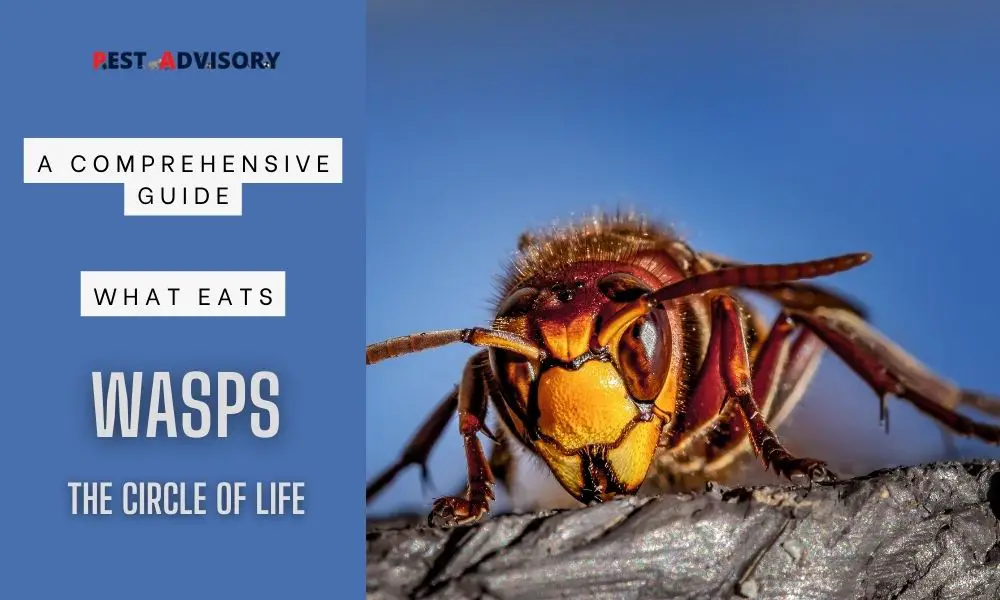Wasps are one of the most feared insects.
In fact, wasps have many natural predators and parasites that rely on them for food or as hosts for their young.
From birds to spiders, these creatures have adapted to overcome the wasp’s defenses and use their unique hunting strategies to catch and consume them.
Important Note: If you're tired of pests and want a reliable solution, then you should definitely consider seeking help from a professional pest control company. DIY solutions can be effective, but if you're dealing with a significant pest infestation, you don't want to rely solely on DIY methods. Pest control companies typically don't charge huge fees. You can fill out this form to receive free quotes from the top local pest control companies, and compare the quotes and see for yourself. Then, finally, your pest problems will be eliminated for good.
In this post, we’ll delve into the intriguing world of wasp predators and parasites, exposing their hidden weaponry and how they’ve evolved to prosper in their natural environments.
Do wasps have predators?
Wasps have several natural predators, including amphibians, birds, mammals, and insects. Animals like salamanders, toads, and hedgehogs prey on wasps, as do blackbirds, magpies, and dragonflies. Other predators include badgers, bears, raccoons, skunks, beetles, centipedes, hoverflies, spiders, moths, praying mantes, and robber flies.
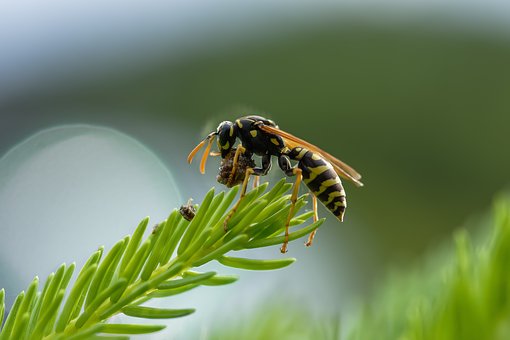
Natural Predators of Wasps
Birds
Birds are one of the main predators of wasps. Birds are one of the main predators of wasps. Insectivorous species feed on wasps. Birds like swallows, flycatchers, etc. are known for feeding on wasps.
Eastern Phoebe
Some birds, such as the Eastern Phoebe, have even been observed using wasp nests as a source of nesting material. They will pluck off strips of the nest and use them to build their own nests.
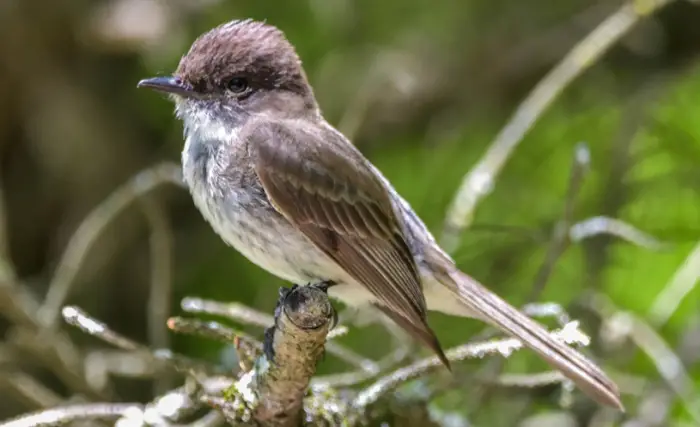
Yellow-billed Cuckoo
While birds are effective predators of wasps, they may also be stung. Some birds have developed specialized strategies for dealing with wasp stings, such as the Yellow-billed Cuckoo, which will rub the wasp against a branch or other surface to remove its stinger before eating it.

Insects
Insects are also known to be predators of wasps. In particular, some species of mantids, spiders, and other predatory insects will prey on wasps when given the opportunity.
Praying mantises
They are able to catch flying wasps in midair with their sharp forelegs, and will also stalk and ambush wasps that are crawling on the ground or on vegetation.
Spiders
Spiders are another group of insects that will prey on wasps. Some species of spiders, such as the mud dauber wasp spider (Argiope bruennichi), have even evolved to look like wasps in order to trick them into getting closer.
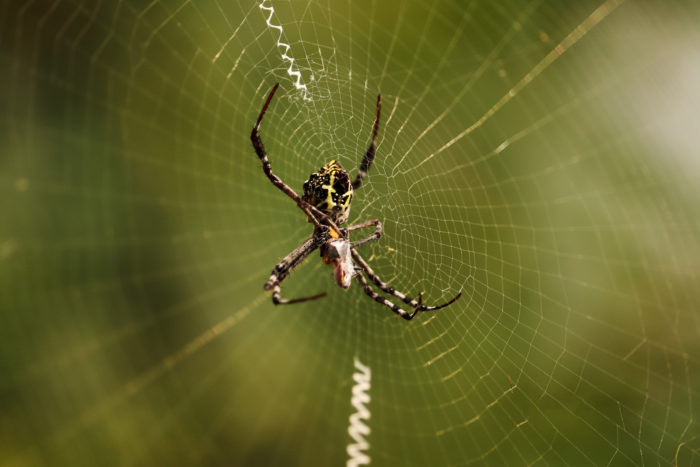
Other Insects
Other predatory insects that may feed on wasps include assassin bugs, robber flies, and some species of beetles.
Mammals
They rarely feed on wasps. Some mammalian predators of wasps include shrews, bats, and even some larger mammals like bears.
Shrews
Shrews are small, insectivorous mammals that feed on a variety of insects, including wasps. They are able to catch and kill wasps using their sharp teeth and agile movements.

Bats
Bats keep wasps as their second preference on their food list. They mainly focus on nectar and fruits. Wasps also feed on the same things, so they compete for resources required for their survival.
Bears
Larger mammals, such as bears, may also prey on wasps when given the opportunity. In some cases, bears have been observed tearing open wasp nests to get at the larvae inside, which are a rich source of protein and other nutrients.
Amphibians
Amphibians are not typically thought of as predators of wasps, but some species may occasionally feed on them. Toads and frogs are often witnessed feeding on wasps.
Frogs
Frogs and toads may feed on wasps when they are foraging for other insects, such as flies or mosquitoes, that are found near wasp nests. They may accidentally ingest wasps while they are feeding on these other insects.

Salamanders
Salamanders, on the other hand, may actively seek out wasps as a food source. Some of the species like red-backed salamanders feed on wasps.
Reptiles
Reptiles are not typically considered predators of wasps, as they tend to prefer other types of prey. However, some species of lizards and snakes have been known to occasionally feed on wasps when they come across them.
Lizards
Lizards may feed on wasps when they are foraging for other insects or small animals in the vicinity of wasp nests
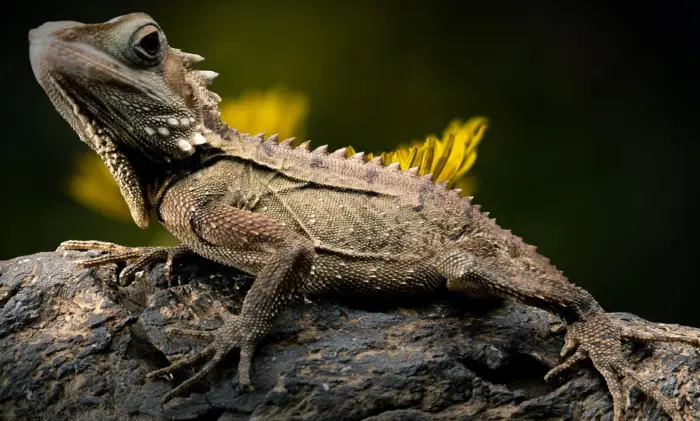
Snakes
Snakes only feed on wasps if they cross paths with them. They do not intentionally hunt them. Some species of snakes that feed on wasps are Eastern Hognose snakes.
Invertebrates
They are the most superior predators. They feed on wasps. They share habitat as well as resources they need for survival. The most common invertebrate predators are spiders, mantids, and robber flies.
Mud Dauber Wasp Spider
Spiders are perhaps the most well-known invertebrate predators of wasps. Many species of spiders will actively hunt and feed on wasps, either by ambushing them or by capturing them in their webs. Some spiders, such as the mud dauber wasp spider (Argiope bruennichi), have even evolved to look like wasps in order to attract them.
Mantids
Mantids are another group of invertebrates that are known to feed on wasps. They are able to catch and kill wasps using their sharp forelegs, and will often wait for wasps to fly close enough for them to strike.
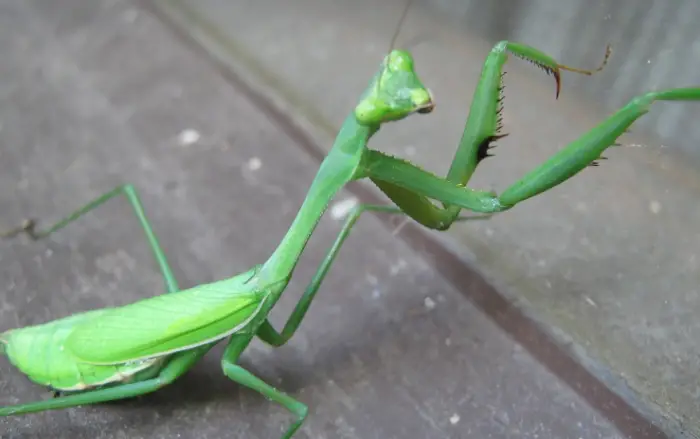
Bugs and Flies
Assassin bugs and robber flies are two other types of predatory insects that may prey on wasps. They are able to catch and kill wasps using their sharp mouthparts, and may also use their strong legs and wings to overpower them.
Frequently Asked Questions
What are wasps afraid of?
They are territorial and aggressive, but they have natural predators such as birds, spiders, and certain insects like praying mantises. Nature keeps its balance by making no being the ultimate superior. Additionally, strong scents like peppermint, vinegar, and citrus can repel them.
What animal would destroy a wasp nest?
Some mammals and birds are immune to wasp stings and will raid nests for their protein-rich larvae and pupae.
Do spiders eat wasps?
Yes, some spiders do eat wasps. In fact, wasps are one of the primary food sources for certain spider species, such as mud dauber wasps. Other spider species, such as crab spiders and orb weavers, may also catch and consume wasps when they get caught in their webs.
What eats a yellow jacket?
Many nature hunters prey on them. That includes birds such as woodpeckers, starlings, and meadowlarks, and mammals like skunks, raccoons, and bears.
Other insects like praying mantises and dragonflies may also catch and consume yellow jackets.
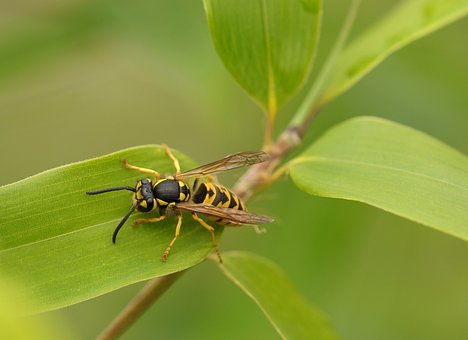
Conclusion
Wasps play an important role in our ecosystem as pollinators and natural pest controllers.
They can cause terrible problems if they grow in number. They can cause severe threats to human health. Luckily nature keeps its balance as there are predators who feed on wasps and maintain the balance of nature.
By promoting healthy ecosystems, we can encourage the proliferation of these predators and help maintain a healthy balance in our environment.

